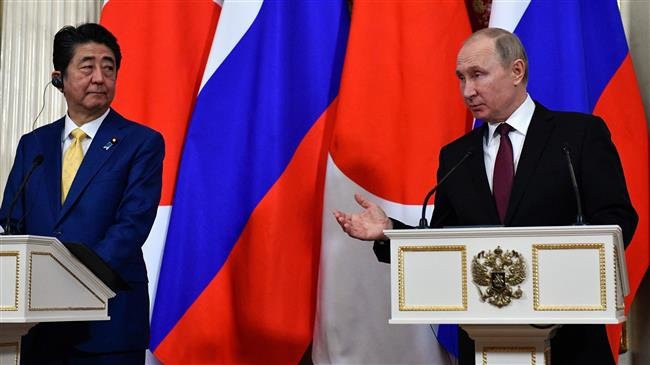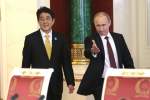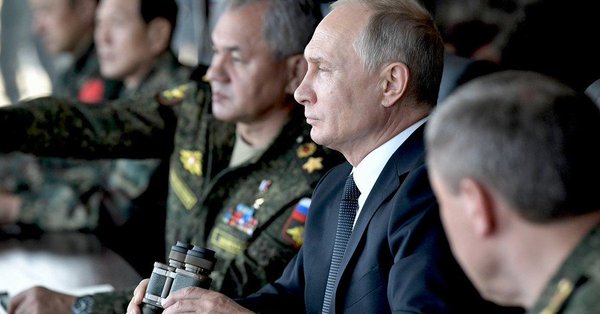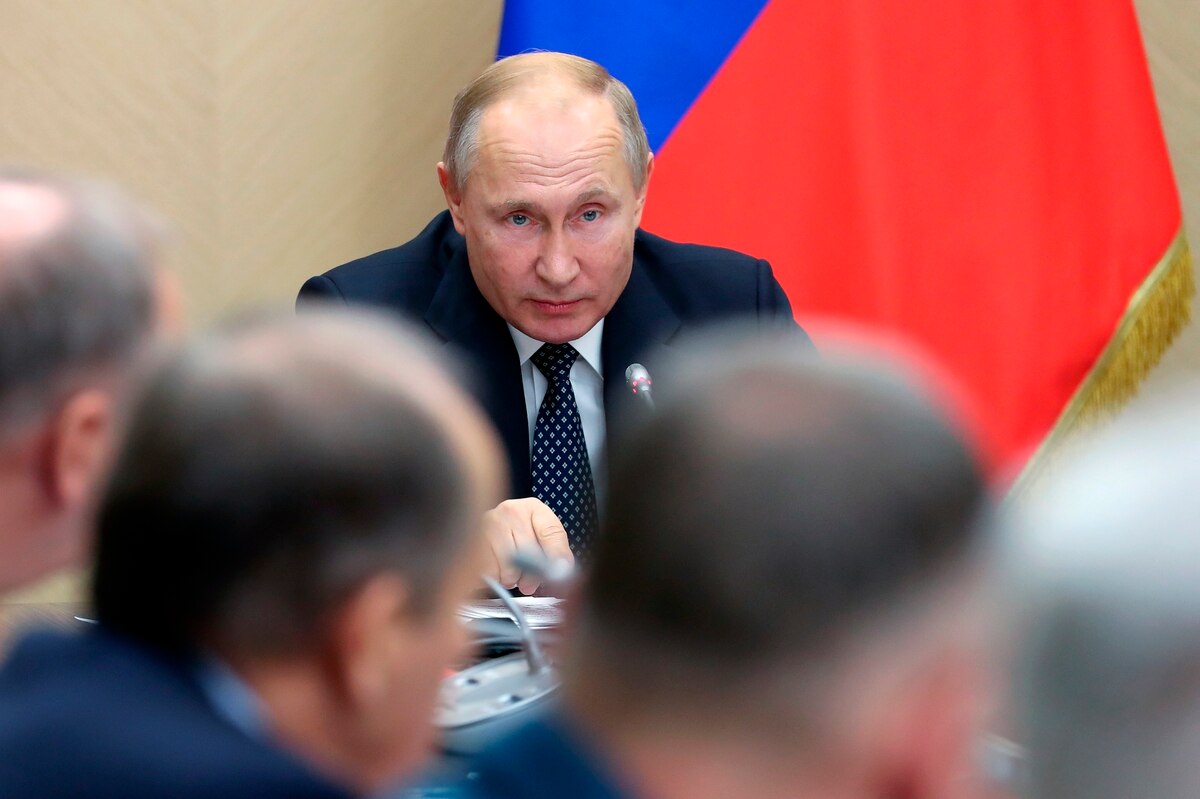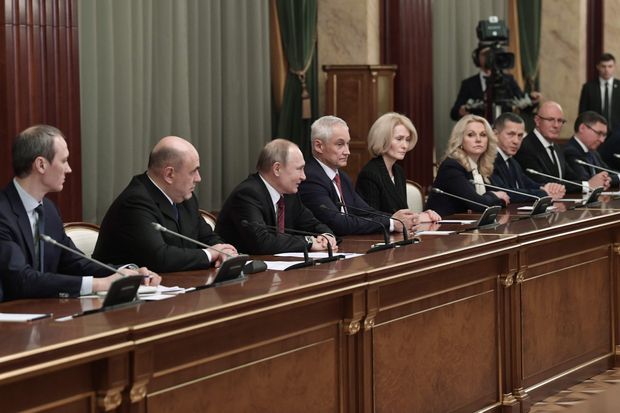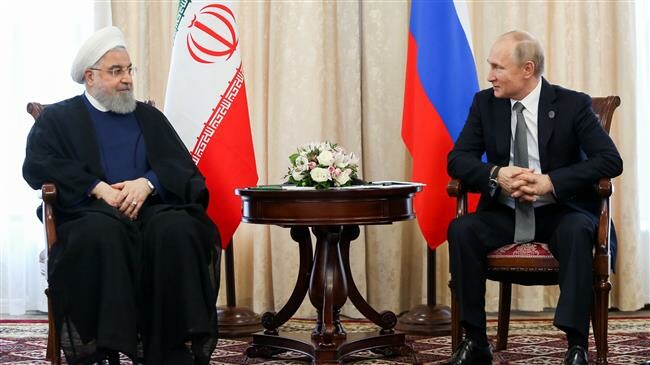Russia has warned against Japan’s security alliance with the United States, denouncing the move as a threat and an impediment to improving bilateral ties between Tokyo and Moscow.
Publish dateSunday 3 March 2019 - 17:55
Story Code : 180688
AVA- Russia’s diplomatic sources said on Saturday that Moscow had expressed concern about the fate of talks with Tokyo on a peace treaty that would resolve a decades-old territorial dispute.
The talks concern four Pacific islands close to Japan’s northern coast, known as the Southern Kurils in Russia and the Northern Territories in Japan.
The disputed islands, which were inhabited by the Japanese, were captured by the Soviet Union in 1945. Japan continues to lay claims to the islands.
The sources said Russia had been increasingly looking at the US-Japan alliance as a major negative factor for Japan-Russia ties, calling on Tokyo not to side with the United States in imposing economic sanctions on Russian companies and officials.
Last November, Japanese Prime Minister Shinzo Abe and Russian President Vladimir Putin agreed to accelerate peace treaty talks based on a 1956 joint declaration aimed at ending their long-running territorial dispute.
But the talks have made little progress as deep divisions remain over the territorial dispute, with Russia stressing that Japan must recognize the acquisition by Moscow of the four islands as the outcome of World War II.
Russia has on several occasions expressed alarm that the Tokyo-Washington’s security alliance may lead to the deployment of the US military in the territories if they are to be handed to Japan.
In an interview with Chinese and Vietnamese media last month, Russian Foreign Minister Sergei Lavrov warned about Japan maintaining close ties with the United States, saying Washington has declared Russia as "its main adversary."
Japan's military alliance with the United States gives Washington "the right to deploy its armed forces anywhere in Japan and they are already deploying their missile defense system there, which creates risks for both Russia and China," Lavrov said.
"It would be a mistake to ignore the fact that, contrary to the declared goal, this actually worsens the quality of our relations (with Japan)."
Tensions between Russia and the US have escalated following Washington's move early last month to pull out of the Intermediate-Range Nuclear Forces (INF) Treaty over claims that Moscow had violated the Cold War-era arms control treaty.
The talks concern four Pacific islands close to Japan’s northern coast, known as the Southern Kurils in Russia and the Northern Territories in Japan.
The disputed islands, which were inhabited by the Japanese, were captured by the Soviet Union in 1945. Japan continues to lay claims to the islands.
The sources said Russia had been increasingly looking at the US-Japan alliance as a major negative factor for Japan-Russia ties, calling on Tokyo not to side with the United States in imposing economic sanctions on Russian companies and officials.
Last November, Japanese Prime Minister Shinzo Abe and Russian President Vladimir Putin agreed to accelerate peace treaty talks based on a 1956 joint declaration aimed at ending their long-running territorial dispute.
But the talks have made little progress as deep divisions remain over the territorial dispute, with Russia stressing that Japan must recognize the acquisition by Moscow of the four islands as the outcome of World War II.
Russia has on several occasions expressed alarm that the Tokyo-Washington’s security alliance may lead to the deployment of the US military in the territories if they are to be handed to Japan.
In an interview with Chinese and Vietnamese media last month, Russian Foreign Minister Sergei Lavrov warned about Japan maintaining close ties with the United States, saying Washington has declared Russia as "its main adversary."
Japan's military alliance with the United States gives Washington "the right to deploy its armed forces anywhere in Japan and they are already deploying their missile defense system there, which creates risks for both Russia and China," Lavrov said.
"It would be a mistake to ignore the fact that, contrary to the declared goal, this actually worsens the quality of our relations (with Japan)."
Tensions between Russia and the US have escalated following Washington's move early last month to pull out of the Intermediate-Range Nuclear Forces (INF) Treaty over claims that Moscow had violated the Cold War-era arms control treaty.
avapress.net/vdcaawn6a49nai1.tgk4.html
Tags
Top hits
